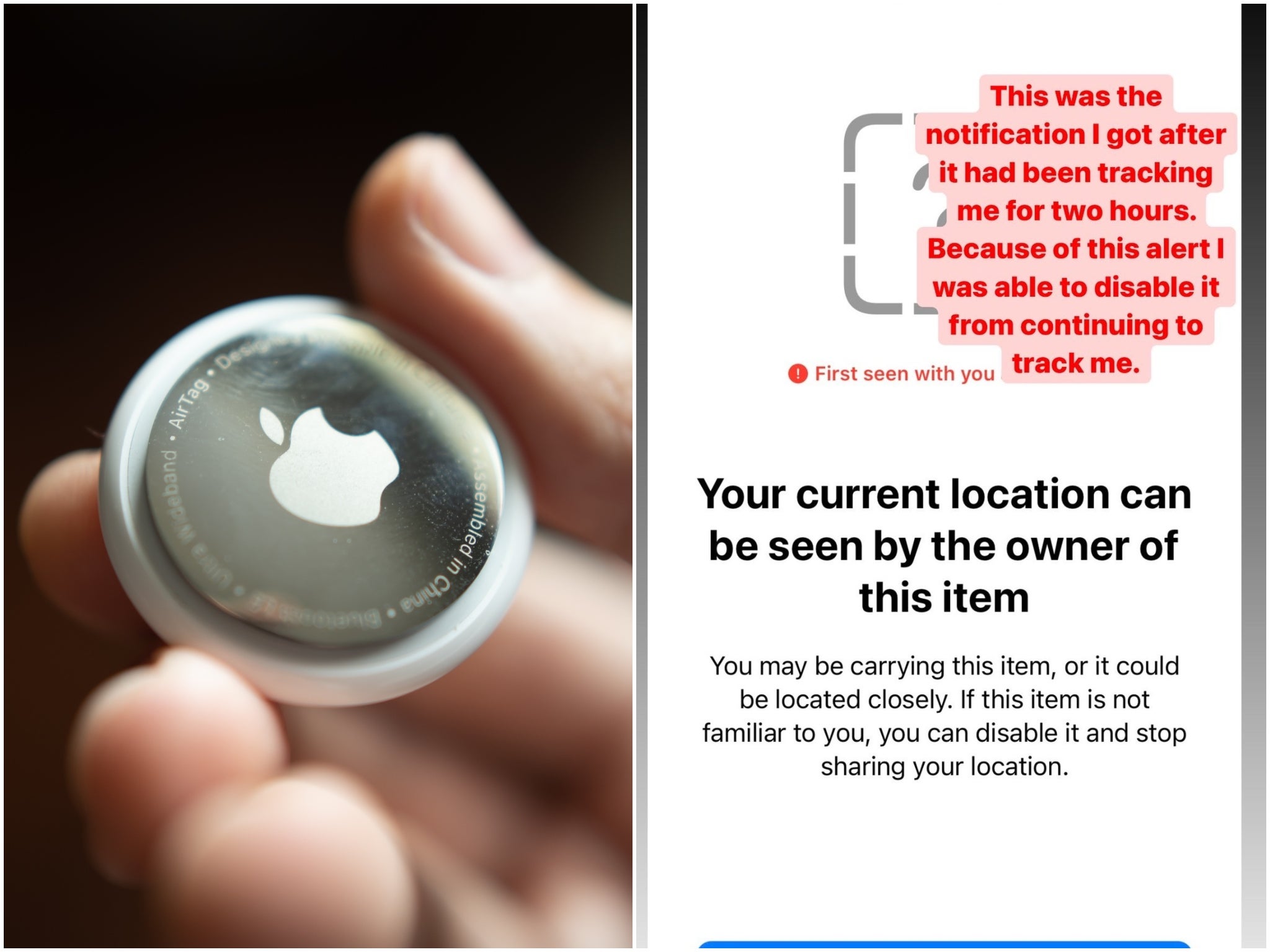The Independent's journalism is supported by our readers. When you purchase through links on our site, we may earn commission.
Apple responds after woman describes ‘nightmare’ of being ‘tracked’ by AirTag
Irish actor Hannah Rose May says she was tracked for two hours before she was notified

Apple has responded as a woman claimed she was tracked by the tech company’s AirTags.
AirTags were released by Apple last year and were developed as a way to track keys or personal items, but there have been numerous reports of people being tracked with the devices.
Last week, Irish actor and writer Hannah Rose May claimed that she had been tracked by an AirTag.
“An Apple AirTag was put on me to track my location Saturday night. I’m sharing what happened to me so you know what to look for,” May wrote in a Twitter thread.
May, who is based in Los Angeles, described attending an after hours event at Disneyland which went on until 2am.
She said: “I got a ‘Find My’ notification at the end of the night that I didn’t think anything of but opened it anyway and it turned out to be this… someone had been tracking me for two hours.”
May shared a screenshot of the alert she received, which showed that she was being tracked by the owner of the AirTag.
May was able to disable the tracking before driving home, and said she was with a group the whole time she was being tracked.
The writer issued some advice for others who may find themselves in a similar situation: “If you ever get a ‘Find My’ notification make sure you open the app immediately as the safety alert doesn’t appear on the screen you have to open the app. Non iPhone users, Apple created an app for androids for this very reason called Tracker Detect.”
She continued: “AirTags are the size of a coin. It’s scary how easy they are to slip into a pocket or purse. Originally created to locate your keys it’s evident they are being used for more bad than good.
“The happiest place on earth could of very easily turned into my worst nightmare.”
May added that after sharing her story on Instagram, she received several direct messages from people who have found they were being tracked by AirTags.
Her thread has been liked nearly 20,000 times and has received over 10,000 retweets.
When contacted by The Indpendent, a spokesperson for Apple directed us to a statement on AirTags released by the company in February this year.
“AirTag was designed to help people locate their personal belongings, not to track people or another person’s property, and we condemn in the strongest possible terms any malicious use of our products,” the statement read.
“Unwanted tracking has long been a societal problem, and we took this concern seriously in the design of AirTag. It’s why the Find My network is built with privacy in mind, uses end-to-end encryption, and why we innovated with the first-ever proactive system to alert you of unwanted tracking. We hope this starts an industry trend for others to also provide these sorts of proactive warnings in their products.”
The spokesperson added that Apple has been proactively working with law enforcement on all AirTag-related requests, and says AirTag incidents are rare.
The spokesperson said that there will be several “improvements” added by the end of 2022, including precision finding, a display alert with sound, refining unwanted tracking alert logic, and adjusting the tone sequence to use more of the loudest tones to make an unknown AirTag more easily findable.
The spokesperson added: “We will continue to listen to feedback and innovate. We’ve built a tunable system of deterrents which we are committed to making improvements to over time.”
Join our commenting forum
Join thought-provoking conversations, follow other Independent readers and see their replies
Comments
Bookmark popover
Removed from bookmarks